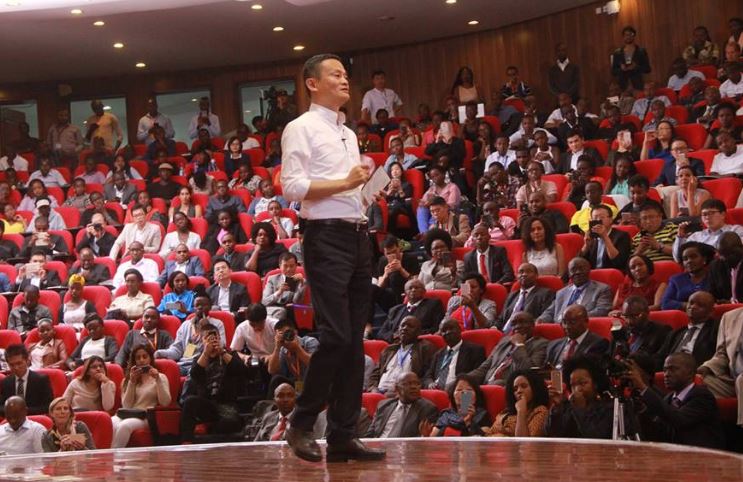
Nairobi, Kenya, Jul 21 – Jack Ma, the founder and executive chairman of Ali Baba Group shared his rags to riches story at the University of Nairobi, Thursday, with young entrepreneurs, students, and government officials.
Born to poor parents surviving on 6 dollars to feed five people, Ma said the desire to succeed was born out of conditions that were dire.
Ma, who has built from scratch China’s biggest e-commerce company, Alibaba, repeatedly emphasized that failure is the number one recipe that makes people succeed.
“The MBA teaches everybody successful stories. When you read too many success stories, people go crazy. They think that they can be successful. But when you read too many failure stories, you learn,” he said.
“When I started Ali Baba, I gave a lot of failure stories cases to my colleagues,” he said, adding that “no matter how smart you are, you will make the mistakes over and over again. Learning failure stories teaches you how to survive when you make mistakes.”
He shared how he failed the China college entrance exams four years in a row, and once he finally got in he was never number one in school and he never set out to be the best.
“I didn’t work hard to be number one in class but number one in helping people. As the chairman of the students union in our university, I was mostly focused on helping people,” he quipped.
Ma is the richest person in Asia and the 14th richest in the world with a net worth of $35.5 billion (60 percent of Kenya’s GDP).
Ma says fail stories have been his biggest asset.
“I went to get a job at KFC. 24 people lined up, 23 were taken, I was rejected. Five of us went to look for a job in the police. 4 were taken and I was rejected,” he said.
“My cousin and I waited for two hours in a queue to be the waiter in a four-star hotel in my city on a very hot day. My cousin’s scores were much lower than mine but he was picked and I was rejected,” he added.
He pointed out that getting used to failure is one of the key building blocks to a successful business.
“Was it painful? Yes, but I got used to it. Everybody, remember that you have to get used to failure,” he added.
In 1999, the e-commerce concept was still a foreign concept. China didn’t have a good internet connection, a good online payment system or even good logistics to make the idea a success. However, through sheer determination, he decided to build the missing infrastructure instead of giving up.
“Where people complain most is where the opportunity lies,” Ma said, as he took a swipe at people who complain all the time.
“When I said that there was a future in e-commerce, they said that there was no payment system. I said let’s build one. Then they said that there was no logistic system and I said let’s build one. Then they said that the government doesn’t support us and I said that they will someday,” Ma said to a cheering a crowd.
Ma, 52, whose real name is Ma Yun, was born and in Hangzhou, Zhejiang Province, China started his company with 18 staff currently employs 56,000 people.
He is on a two day trip to Kenya and Rwanda to share insights with African entrepreneurs in his capacity as a special adviser for youth entrepreneurship and small businesses to the United Nations Conference on Trade and Development (UNCTAD).